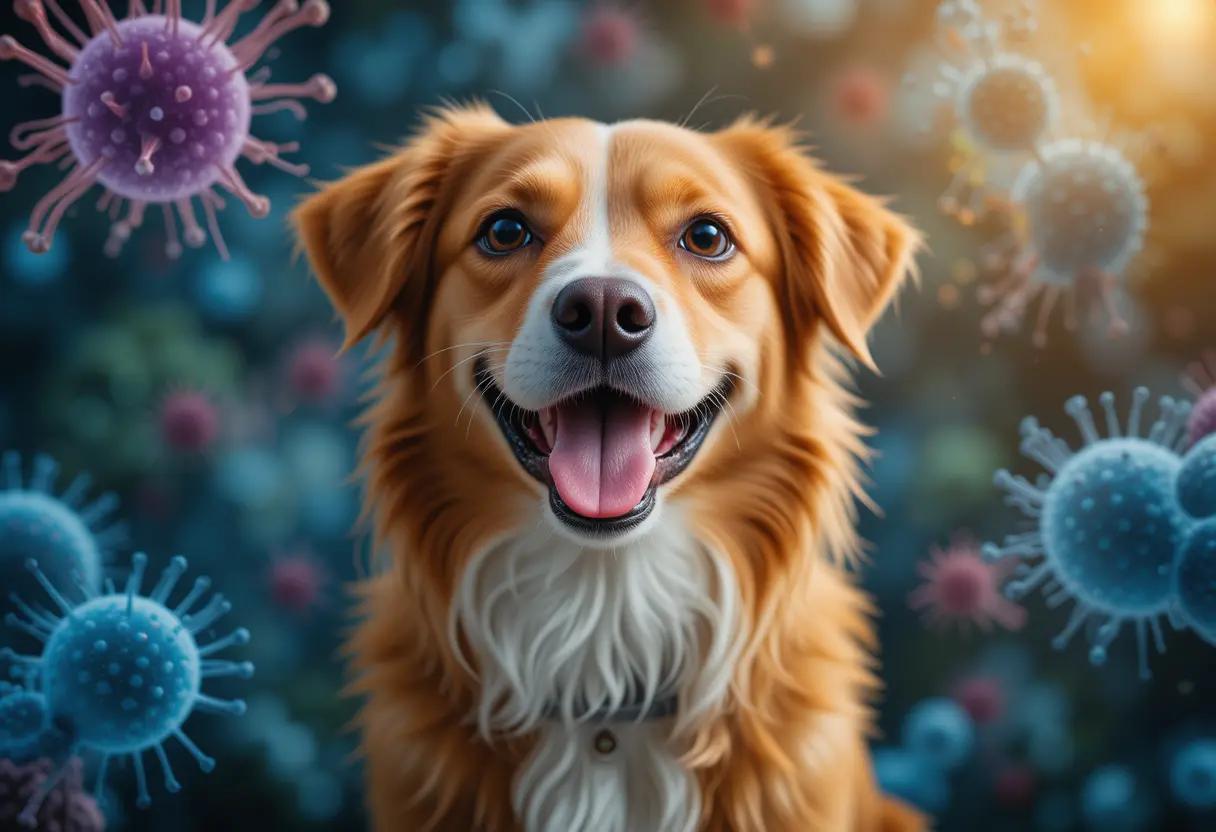Importance of microbiomes
When we think about keeping our pets healthy, we often focus on feeding them the best food, taking them on walks, and visiting the vet regularly. But there’s something else that’s incredibly important for their well-being: the microbiome. You might not hear about it as much, but the microbiome is crucial for your pet’s health, affecting everything from digestion to how they feel emotionally.
In this article, we’re going to explore what microbiomes are, why they’re so important for your pet’s health, and how you can help keep your furry friend’s microbiome in check.
Table of Contents
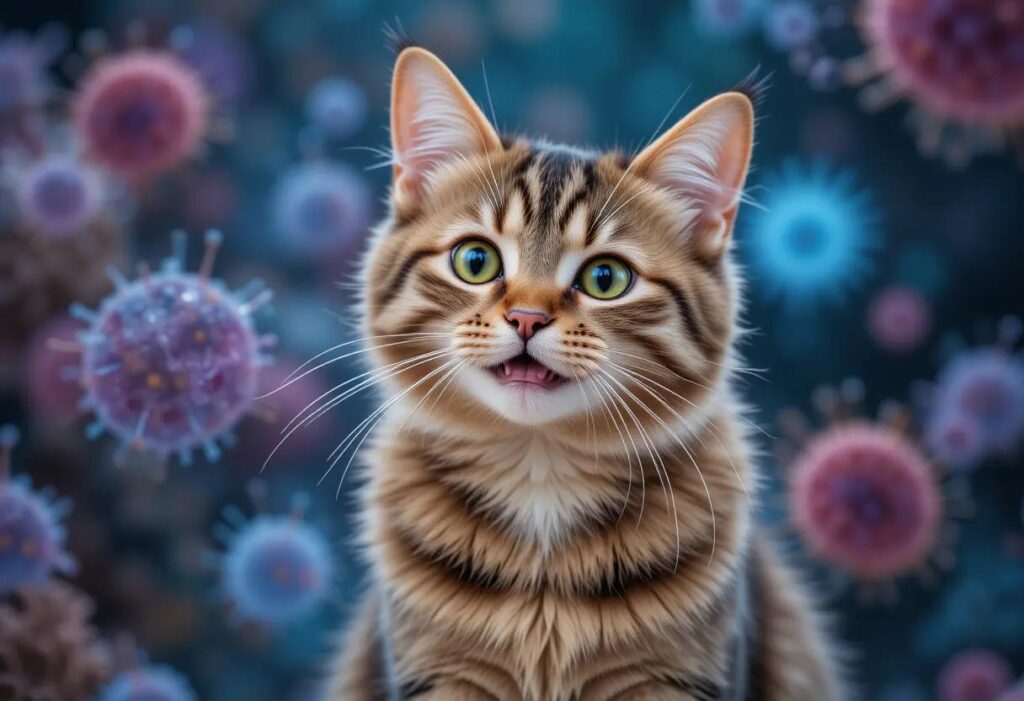
What is a Microbiome?
Let’s start with the basics: what is a microbiome? A microbiome is made up of trillions of tiny organisms—bacteria, viruses, fungi, and other microbes—that live inside your pet’s body. Most of these microorganisms live in their gut, but some are found in other parts of the body, such as the skin or mouth. These microbes are so small that you can’t see them with your eyes, but they do a lot of important work.
Think of the microbiome as a group of workers inside your pet’s body, each one doing a job to help your pet stay healthy. Some of these workers help with digestion, breaking down food and absorbing nutrients. Others help your pet fight off harmful bacteria or viruses that could make them sick. There are also workers that help regulate your pet’s mood by producing chemicals that affect their behavior.
In simple terms, the microbiome is like a small, busy community of microbes that helps everything in your pet’s body run smoothly.
How Do Microbiomes and Pet’s Gut Health Affect Your Pet’s Health?
The microbiome in your pet’s gut affects many parts of their health. Here are some of the key ways it makes a difference:
1. Digestion and Nutrient Absorption:
The gut microbiome plays a critical role in helping your pet digest their food and absorb the nutrients they need to stay healthy. When your pet eats, the microbes in their gut break down the food and extract important vitamins and minerals. These nutrients are then absorbed into the bloodstream, where they can be used by the body to stay strong.
If the microbiome is out of balance, your pet might struggle with digestive problems, such as diarrhea, constipation, gas, or bloating. In some cases, an imbalance can even lead to malnutrition since your pet won’t be able to absorb nutrients properly. A healthy microbiome ensures that your pet can digest food easily and get the energy they need.
2. Immune Function:
Did you know that a huge portion of your pet’s immune system is actually located in their gut? It’s true! Around 70% of the immune system is housed in the digestive tract. The good bacteria in your pet’s microbiome help protect them from harmful pathogens, like viruses and bacteria, by keeping them in check.
When the gut microbiome is imbalanced, your pet’s immune system might weaken, making them more vulnerable to infections and illnesses. That’s why maintaining a healthy microbiome is so important—it helps your pet stay strong and fight off germs!
3. Mental Health and Behavior:
The microbiome also has an impact on your pet’s mood and behavior. That’s right—the microbes in your pet’s gut help produce neurotransmitters like serotonin, which are chemicals that influence how they feel. Serotonin is often called the “feel-good” chemical because it’s linked to happiness and calmness.
When the microbiome is out of balance, it can lead to changes in your pet’s behavior. For example, they might become more anxious, irritable, or even aggressive. In fact, some pets with an imbalanced microbiome may experience depression or fearfulness. So, a happy gut is key to keeping your pet’s mood in check.
4. Skin Health:
Your pet’s gut health can even affect their skin. If the microbiome is out of balance, it can cause inflammation, which can travel to other parts of the body, including the skin. This can lead to issues like itchy skin, rashes, hot spots, or even hair loss. Keeping your pet’s gut microbiome balanced helps prevent skin problems and ensures that their coat stays shiny and healthy.
5. Weight Management:
The microbiome also plays a role in helping your pet manage their weight. When the microbiome is healthy, it helps regulate how food is digested and how nutrients are absorbed. If the balance of microbes is disrupted, it can lead to weight gain or weight loss since your pet’s body won’t be able to process food as efficiently. A healthy microbiome helps your pet maintain a healthy weight by supporting digestion and metabolism.
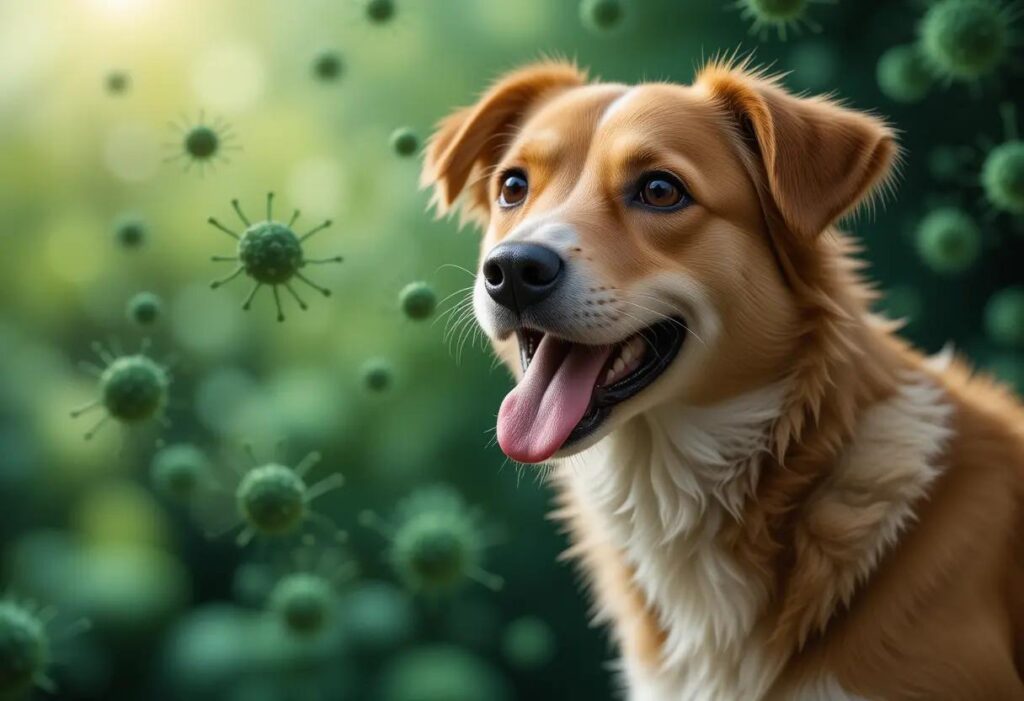
Signs of an Unhealthy Microbiome and Pet’s Gut Health
Just like with humans, your pet’s gut health can sometimes go off balance. If you notice any of the following symptoms, it could be a sign that your pet’s microbiome needs some attention:
1. Digestive Issues:
If your pet is dealing with digestive problems like diarrhea, constipation, or gas, it could be a sign that their microbiome is out of balance. These digestive issues often indicate that the good bacteria in the gut are being overrun by bad bacteria or other harmful microorganisms.
2. Skin Problems:
Your pet’s skin is another area that can be affected by an unhealthy microbiome. If you notice itchy skin, rashes, hot spots, or other skin issues, it could be a sign of inflammation caused by an imbalanced microbiome. Skin problems are often a result of gut health issues.
3. Behavioral Changes:
Pets with an unhealthy microbiome might experience mood changes. If your pet suddenly becomes more anxious, irritable, or aggressive, it could be a sign that their gut health is affecting their brain chemistry. This is because the gut produces chemicals that impact your pet’s mood and behavior.
4. Weight Fluctuations:
Unexplained weight gain or weight loss can also be a sign of an unhealthy microbiome. If your pet isn’t able to absorb nutrients properly, they might struggle to maintain a healthy weight. On the other hand, some pets may gain weight due to imbalances in their gut.
5. Low Energy or Lethargy:
If your pet is suddenly more tired than usual or seems less active, it could be a sign of an unhealthy microbiome. When the gut isn’t functioning properly, it can affect your pet’s energy levels and overall vitality.
Factors That Affect Microbiomes and Pet’s Gut Health
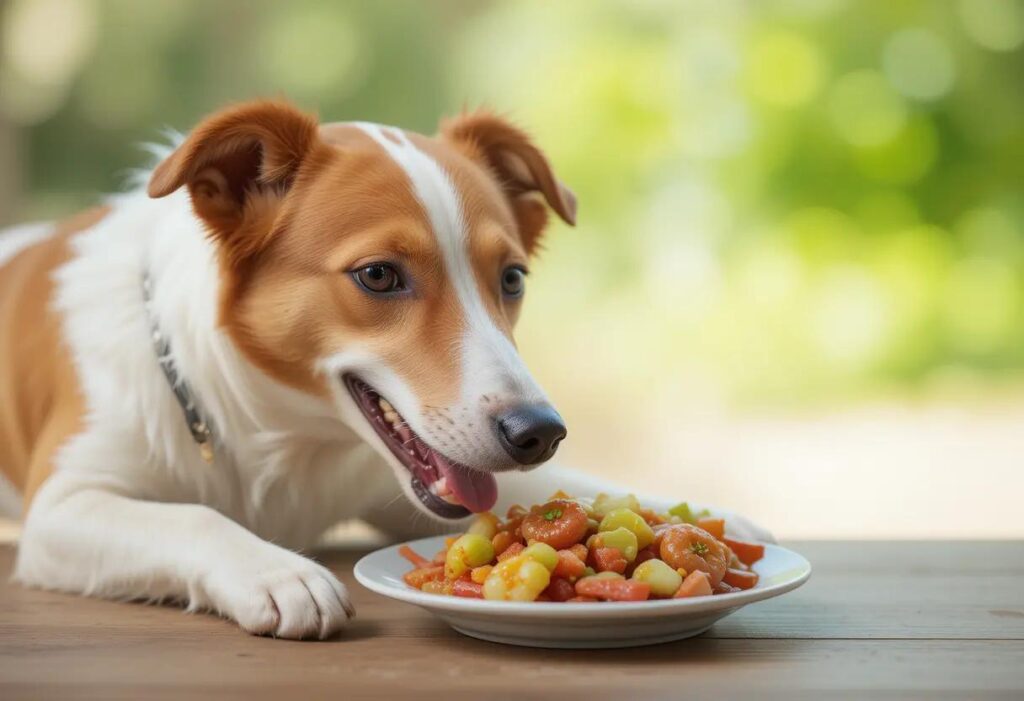
There are several factors that can cause your pet’s microbiome to become unbalanced. Here are some of the most common ones:
1. Diet:
What your pet eats has a big impact on their microbiome. High-quality food that is rich in fiber, healthy fats, and lean proteins can support a healthy microbiome. Some foods also contain probiotics and prebiotics, which are special nutrients that help encourage the growth of good bacteria.
On the flip side, low-quality food with artificial additives, preservatives, and sugars can harm the microbiome and lead to digestive problems and other health issues.
2. Stress:
Just like humans, pets can experience stress, and it can affect their microbiome. When pets are stressed, their bodies release cortisol, a hormone that can disrupt the balance of good bacteria in the gut. This can lead to digestive issues, weakened immunity, and changes in behavior.
3. Medications:
Certain medications, like antibiotics, can affect your pet’s microbiome. Antibiotics are important for treating infections, but they can also kill the good bacteria in the gut. If your pet has been on antibiotics, it’s a good idea to give them probiotics afterward to help restore balance to their microbiome.
4. Lack of Exercise:
Exercise isn’t just good for your pet’s muscles—it also supports their microbiome. Regular physical activity helps stimulate digestion, improve metabolism, and promote the growth of beneficial gut bacteria. If your pet isn’t getting enough exercise, their microbiome might not stay in tip-top shape.
5. Age:
As pets age, their microbiomes naturally change. Older pets may have less diversity in their gut bacteria, which can lead to digestive problems and other health issues. Senior pets often need special care, including a diet tailored to their needs, to support a healthy microbiome.
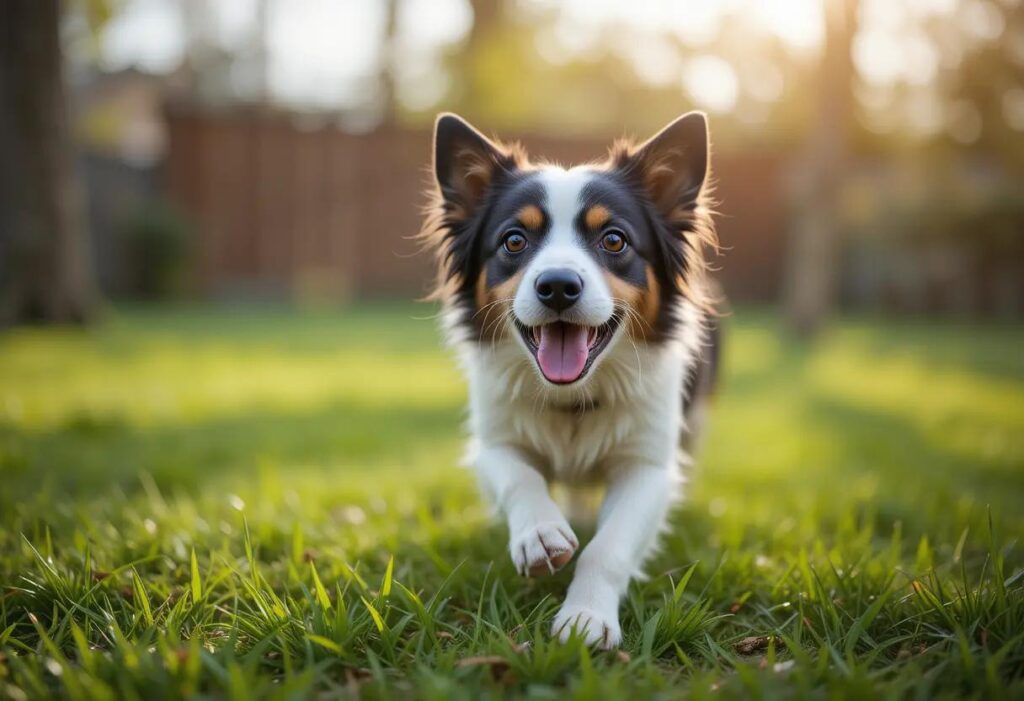
How to Improve Your Pet’s Gut Health and Microbiome
Taking steps to improve and maintain your pet’s microbiome and gut health is essential for their overall wellbeing. Here are a few tips to help support a healthy microbiome:
1. Feed a Balanced Diet
Providing your pet with a nutritious, well-balanced diet is the foundation of a healthy microbiome. Choose high-quality pet food that contains natural ingredients, including fiber, protein, and healthy fats. Foods with probiotics or prebiotics can also help support gut health.
2. Hydrate Your Pet
Adequate hydration is essential for good digestion and nutrient absorption. Always ensure your pet has access to fresh, clean water. If they’re not drinking enough, try adding water to their dry food or offering wet food, which contains more moisture.
3. Manage Stress
Helping your pet manage stress is crucial for maintaining a healthy microbiome. Create a calm, consistent environment and provide plenty of attention and affection. Exercise, playtime, and calming products like pheromone diffusers can also help reduce stress levels.
4. Regular Vet Visits
Regular checkups with your vet are essential for monitoring your pet’s overall health, including their gut health. Your vet can perform tests to identify any gut imbalances and recommend the best course of action to restore balance.
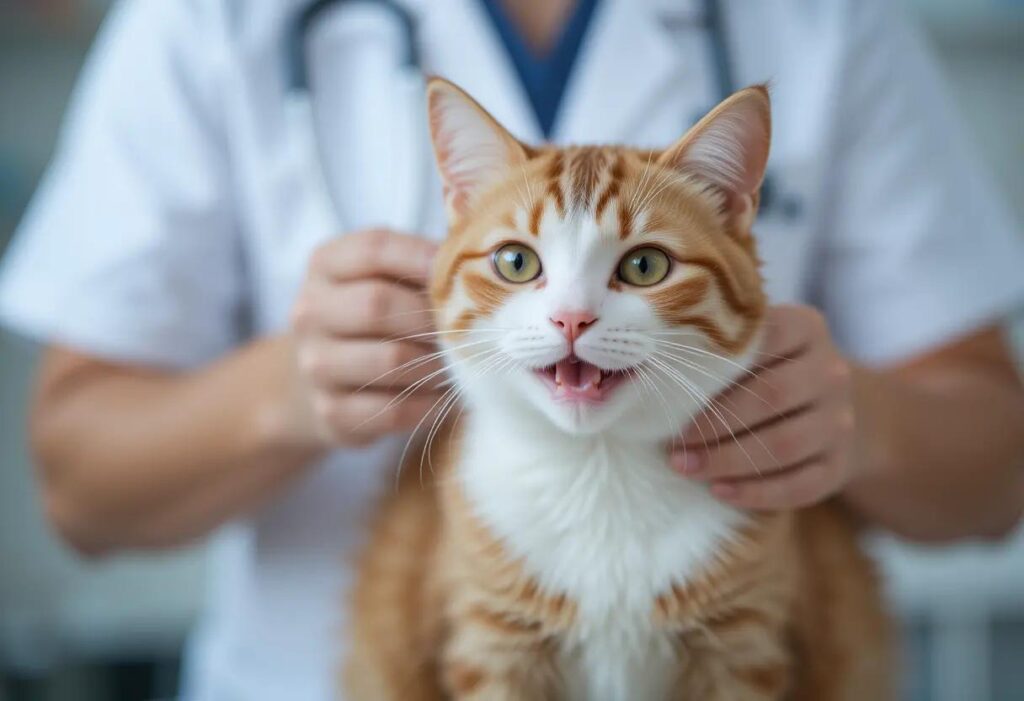
5. Get Plenty of Exercise
Exercise is not only good for your pet’s body, but it also supports a healthy microbiome. Make sure your pet gets plenty of exercise every day to promote healthy digestion and overall wellbeing.
Final Thoughts
Microbiomes and pet’s gut health are essential for their health, affecting everything from digestion to immune function and behavior. By focusing on their diet, reducing stress, ensuring regular exercise, and visiting the vet for routine checkups, you can help maintain a balanced microbiome and improve your pet’s overall health and wellbeing. A healthy gut equals a happy pet!
Ready to Become the Best Dog Parent Ever?
Is Your Dog Ready to Live Their Best Life?
Ready to Become the Best Cat Parent Ever?
FAQs
What is a microbiome?
A microbiome is a community of tiny living things, like bacteria, fungi, and viruses, that live in your pet’s body. Most of them live in your pet’s gut (stomach and intestines) and help keep them healthy by helping them digest food, fight bad germs, and stay strong.
Why is the microbiome important for my pet?
The microbiome helps your pet’s body in many ways! It helps digest food, absorb nutrients, and keep their immune system working well. It also affects their behavior and mood, and can even help keep their skin and coat healthy.
Can an unhealthy microbiome make my pet sick?
Yes! If the balance of good and bad bacteria in your pet’s gut gets messed up, it can cause problems like upset stomachs, skin issues, weight changes, or even mood swings. Keeping the microbiome balanced is important for keeping your pet happy and healthy.
How can I tell if my pet’s microbiome is unhealthy?
If your pet is having tummy troubles like diarrhea or constipation, scratching a lot, or acting differently (like being more anxious or tired), it could be a sign that their microbiome is off. Always check with a vet if you’re worried!
Can my pet’s diet affect their microbiome?
Yes, absolutely! A healthy diet with lots of fiber, proteins, and good fats helps keep your pet’s microbiome in balance. Treats with probiotics or prebiotics are also helpful because they feed the good bacteria in their gut.
Can stress hurt my pet’s microbiome?
Yes, stress can mess up the balance of bacteria in your pet’s gut. If your pet gets too stressed or anxious, it might cause tummy problems or behavior changes. So it’s important to keep your pet’s life calm and happy!
Are there foods I should avoid giving my pet for better gut health?
Yes! Try not to feed your pet too many processed foods or treats full of artificial additives. These can upset their gut. Stick to high-quality pet food with natural ingredients that will help keep their microbiomes healthy.
How can I help my pet keep their microbiome healthy?
The best way to help your pet’s microbiome is by feeding them a balanced, nutritious diet, keeping them hydrated, and reducing stress. Also, make sure they get enough exercise and visit the vet regularly to stay on top of their health.
Can I give my pet probiotics?
Yes, probiotics are a great way to support your pet’s gut health. Probiotics are good bacteria that help balance your pet’s microbiome. You can find pet-specific probiotics in stores or ask your vet if they recommend any.
Does my pet’s microbiome change as they get older?
Yes, just like people, pets’ microbiomes can change as they age. Older pets may have a less diverse microbiome, which could cause some digestive issues. It’s a good idea to talk to your vet about adjusting their diet and care routine to keep their microbiome healthy as they age.

